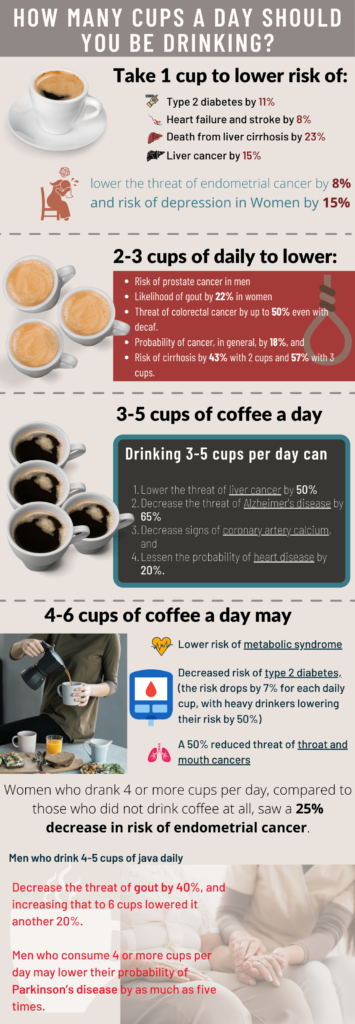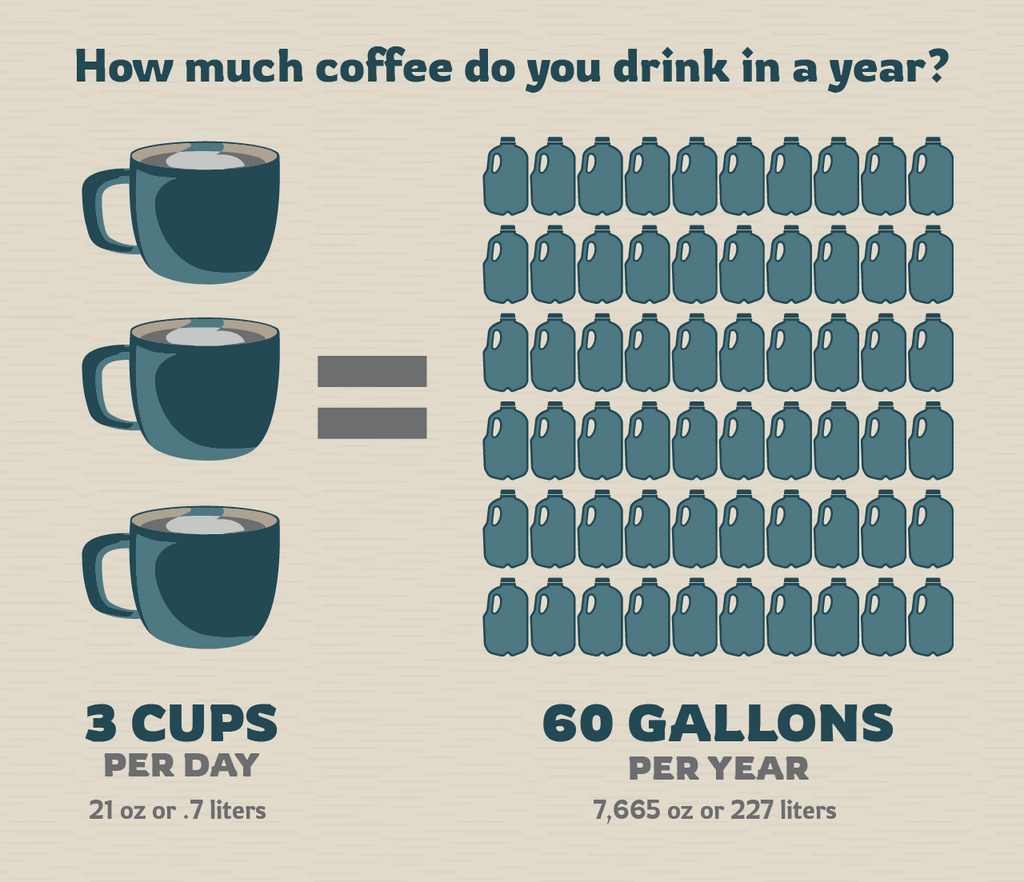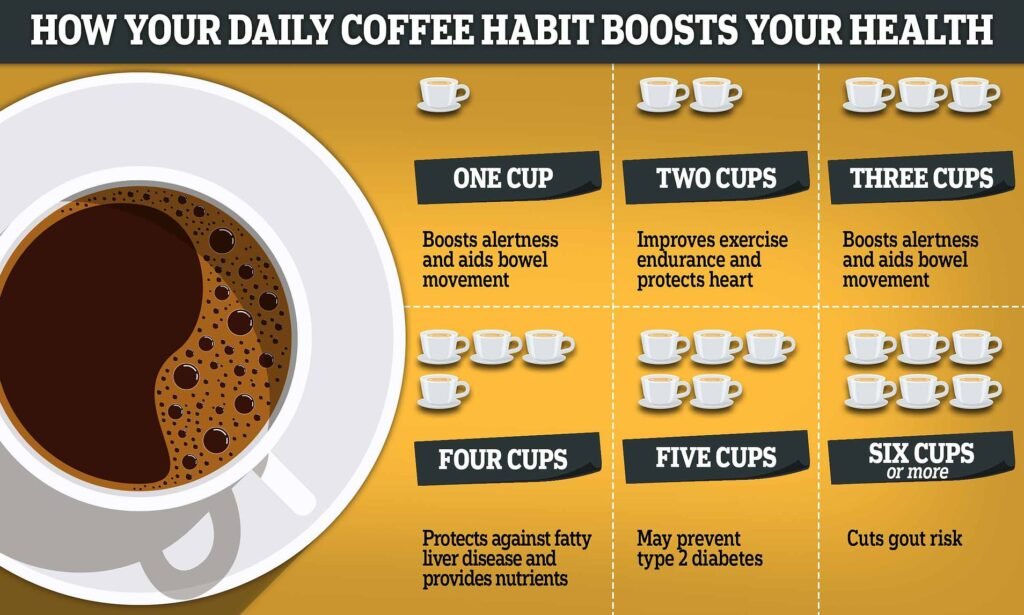Finding the Healthy Amount of Coffee Per Day
How much coffee a day is healthy? It’s a question many of you ask while savoring a cup of your favorite brew. With varying perspectives on coffee consumption, it can be challenging to determine what’s best for you. Let’s embark on this journey to unlock the secrets behind a healthy coffee routine.

The Love Affair with Coffee
Coffee is not just a beverage; it’s a ritual for millions worldwide. Whether it’s your morning pick-me-up or a mid-afternoon reset, coffee has woven itself into the fabric of daily life.
Why Do You Love Coffee?
Aside from its invigorating effects, coffee is cherished for its rich aroma and diverse flavors. Each cup tells a story of its beans’ origin, making your coffee experience unique.
The Science of Coffee
Coffee beans contain a mix of chemical compounds, with caffeine being the most famous. This stimulant affects your central nervous system, providing that beloved boost of energy and alertness.
Benefits of Coffee
Before discussing the ideal amount of coffee, let’s acknowledge its benefits. Coffee isn’t just a delightful drink; it packs health advantages, making moderate consumption worth considering.
Boosts Cognitive Function
Caffeine enhances mental alertness and concentration, aiding in better productivity and focus. This can be particularly beneficial during long work hours or study sessions.
Provides Antioxidants
Coffee is rich in antioxidants, which help combat oxidative stress in your body, reducing the risk of chronic diseases like heart disease and cancer.
Improves Physical Performance
Caffeine is known to increase adrenaline levels, enhancing physical performance. That’s why many athletes consume coffee before workouts to push their boundaries.
The Downside of Too Much Coffee
While coffee has its merits, consuming it in excess can lead to negative effects. Understanding these drawbacks is essential to maintaining a healthy balance.
Anxiety and Restlessness
High caffeine intake can lead to heightened anxiety and restlessness, disrupting your mental peace. It’s important to listen to your body and recognize when you’ve had too much.
Digestive Issues
Excessive coffee consumption can irritate your gastrointestinal tract, leading to discomfort. Monitoring how your body reacts to coffee can help you avoid such issues.
Insomnia
Caffeine’s stimulating effects can interfere with your sleep cycle. Drinking coffee late in the day may hinder your ability to fall asleep, affecting your overall sleep quality.

Finding Your Perfect Coffee Balance
Discovering the right amount of coffee for you requires understanding your body’s response to caffeine and considering your lifestyle.
General Recommendations
Most health experts suggest that consuming up to 400 milligrams of caffeine per day, equivalent to about four 8-ounce cups of coffee, is generally safe for most adults.
| Coffee Type | Serving Size | Caffeine Content |
|---|---|---|
| Brewed Coffee | 8 ounces | 95 mg |
| Espresso | 1 ounce | 63 mg |
| Instant Coffee | 8 ounces | 62 mg |
| Decaf Coffee | 8 ounces | 2 mg |
Personal Factors to Consider
Your ideal coffee intake can vary based on factors such as age, weight, and overall health. Here’s how you can find your sweet spot:
Sensitivity to Caffeine
Some of you may be more sensitive to caffeine than others, experiencing jitters or rapid heartbeats even with small amounts. Start with smaller servings and gradually adjust based on your body’s feedback.
Medical Conditions
Individuals with certain medical conditions, like heart disorders or acid reflux, may need to limit their coffee intake. Consulting with a healthcare provider can provide personalized guidance.
Making Coffee Healthier
You don’t have to cut down on coffee entirely to stay healthy. By making a few mindful adjustments to your coffee routine, you can enjoy its benefits while minimizing risks.
Choose Quality Over Quantity
Opt for high-quality coffee beans and pay attention to brewing methods. Freshly ground coffee made from quality beans can offer a richer, fresher taste and potentially more antioxidants.
Mind Your Additives
While it’s tempting to load your coffee with sugar and cream, these additions can add unnecessary calories and fat. Consider healthier alternatives like almond milk or a touch of honey.
Stay Hydrated
Coffee can have a diuretic effect, leading to dehydration if consumed in large amounts. Balance your coffee intake with plenty of water throughout the day.
Pair with Healthy Foods
Enjoy your coffee alongside a nutritious meal or snack. Pairing it with fruits, nuts, or whole grains can help stabilize your energy levels and provide essential nutrients.

Timing Your Coffee Intake
When you drink coffee can be just as important as how much you drink. Optimizing the timing of your coffee consumption can help you reap its benefits without disrupting your daily routine.
Boosting Your Morning
Drinking coffee in the morning can kickstart your day, improving focus and alertness. However, consuming it too early, particularly before breakfast, might upset your stomach.
Afternoons Can Be Tricky
A lunchtime coffee can combat the post-lunch slump but be cautious about drinking it too late. Aim to have your last cup of the day at least six hours before bedtime to avoid sleep disturbances.
Listening to Your Body’s Rhythm
Your body’s natural circadian rhythm influences how you respond to caffeine. Understanding these patterns can help you decide the best times for coffee.
Coffee Alternatives
If you’re looking to reduce your coffee intake or explore other options, there are plenty of alternatives that offer a similar boost without the potential downsides of caffeine overload.
Herbal Teas
Herbal teas like chamomile, peppermint, or rooibos are caffeine-free and can be a soothing alternative, especially in the evening.
| Tea Type | Benefits |
|---|---|
| Chamomile | Calming effect, aids sleep |
| Peppermint | Refreshing, aids digestion |
| Rooibos | Rich in antioxidants, caffeine-free |
Green Tea
Green tea contains less caffeine than coffee and offers a gentler energy boost, along with a range of health benefits like improved brain function and fat loss.
Sparkling Water
For those who enjoy the refreshing aspect of coffee, sparkling water can be a hydrating and caffeine-free alternative that keeps you alert.

Debunking Coffee Myths
There are many myths surrounding coffee consumption that can lead to confusion. Let’s clear up some of the common misconceptions to help you make informed decisions.
Myth 1: Coffee Causes Dehydration
While coffee has a diuretic effect, moderate consumption does not lead to significant dehydration. Balancing your caffeine intake with water can keep you well-hydrated.
Myth 2: Coffee Stunts Growth
This myth has been debunked by multiple studies. Coffee does not affect your growth, though it’s advisable for adolescents to limit caffeine intake due to their developing bodies.
Myth 3: Coffee is Addictive
Though caffeine can lead to dependence, comparing it to hard drugs is an exaggeration. Most people can reduce their intake without severe withdrawal symptoms by tapering off gradually.
Final Thoughts
Balancing your coffee intake can enhance your life in many ways, from boosting productivity to providing valuable antioxidants. By understanding your personal limits and making mindful choices, you can enjoy this beloved beverage without compromising your health.
Finding the right amount of coffee for you may require some experimentation, but with these guidelines, you’re well-equipped to enjoy your daily cup while maintaining a healthy lifestyle. Cheers to making informed, healthy choices about your coffee consumption!

